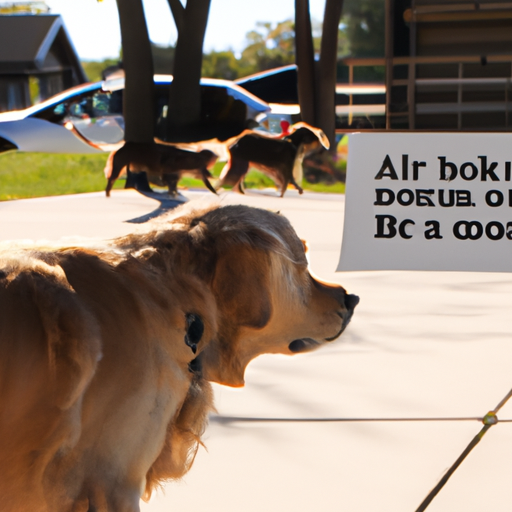Barking is a natural behavior in dogs. However, it can be quite a nuisance when your dog constantly barks at other dogs. In this guide, we will show you how you can train your beloved pet not to bark at other dogs.
Understanding Why Dogs Bark
Before you start training your dog, it’s important to understand why dogs bark in the first place. Dogs bark for a variety of reasons:
- To communicate with other dogs
- To alert their owners of potential threats
- Because they are anxious or scared
- Because they are bored or excited
Understanding the root cause of your dog’s barking is key to addressing it effectively.
Recognizing the Triggers
To train your dog not to bark at other dogs, you first need to identify what triggers the barking. Watch your dog closely when other dogs are present. Note their behavior and try to identify any specific triggers. This could be:
- The size or breed of the other dog
- The other dog’s behavior (e.g., running, barking, staring)
- The location or context (e.g., in a park, on a walk, behind a fence)
Training Your Dog to Focus on You
Once you understand why your dog is barking and what triggers it, you can start training your dog to focus on you instead of the other dogs. This can be done through a few simple steps:
- Start by getting your dog’s attention without any distractions.
- Once you have their attention, give them a treat or reward.
- Gradually introduce distractions (such as other dogs), while continuing to reward your dog for focusing on you.
- If your dog starts barking at the distraction, remove the reward and try again later.
Positive Reinforcement
Positive reinforcement is a crucial aspect of dog training. This involves rewarding your dog for good behavior (not barking) and ignoring or redirecting bad behavior (barking). Remember, it’s important to reward your dog immediately after the good behavior, so they associate the reward with their actions.
Socializing Your Dog
Socializing your dog with other dogs can also help reduce barking. This can be done by:
- Taking your dog to dog parks or doggy daycares
- Hosting playdates with other dogs
- Enrolling your dog in training classes
Remember to always monitor these interactions to ensure they are positive experiences for your dog.
Seeking Professional Help
If your dog’s barking is persistent and you’re struggling to manage it, consider seeking professional help. A professional dog trainer or behaviorist can provide personalized advice and training strategies.
Consistency is Key
Consistency is key when training your dog. Make sure everyone in your household is on the same page and uses the same commands and rewards. This will help your dog understand what is expected of them.
FAQ
How long will it take to train my dog not to bark at other dogs?
Training a dog not to bark at other dogs can take time, and the length of time can vary depending on the dog and the intensity of the barking. Be patient and consistent with your training.
Can I stop my dog from barking completely?
It’s unrealistic and unfair to expect your dog to stop barking completely. Barking is a form of communication for dogs. The goal should be to reduce excessive or unnecessary barking.
What should I do if my dog’s barking is causing problems with my neighbors?
If your dog’s barking is causing problems with your neighbors, it’s important to address the issue promptly. Explain the steps you are taking to manage the barking and consider seeking professional help if necessary.
What if my dog barks at other dogs out of fear or anxiety?
If your dog barks at other dogs out of fear or anxiety, consider consulting with a professional. They can provide strategies and techniques to help manage your dog’s fear or anxiety.



